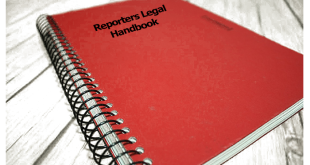For many years Nevada has had on its books a criminal libel statute. It was considered an historical anachronism. However, that was until 1992, when an attorney implied that they might consider filing criminal libel charges against a Nevada paper. While the DA eventually decided not to prosecute, the incident gave new impetus to examining the crime, its elements, and defenses.
Criminal libel is the publication of a malicious defamation “tending to blacken the memory of the dead; or to impeach the honesty, integrity, virtue, or reputation; or to publish the natural defects of a living person, or persons, or community or association of persons, and to expose them to public hatred, contempt or ridicule”. NRS §200.510(1). Criminal libel is a gross misdemeanor. NRS §200.510(1).
It is the author’s belief that because the statute provides that truth is a defense only when supported by lack of malice, it is unconstitutional. Certainly, that is true as the statute applies to publication of information about public figures. In Garrison v. Louisiana, 379 U.S. 64, 85 S.Ct. 209 (1964), the Supreme Court found a similar statute invalid because it punished true statements made about public figures. Since NRS §200.510 provides no exception for statements about public figures it is clearly unconstitutional in that content.
The statute also appears to be unconstitutionally vague. Since it fails to define the standard governing “malicious,” the statute is unclear whether it must be made with “actual malice,” under the New York Times v. Sullivan standard. State v. Powell, 839 P.2d 139 (1992). In addition, the imprecise language regarding just what is “defamatory”, and what are “natural defects” is probably too vague for a criminal statute. Gottshalk v. State, 575 P.2d 289 (1978).
It is also accepted common law that one cannot libel the dead. Restatement of Torts (Second) §560 and that “an individual may not, as a general rule, recover damages for defamation of a group…” Macaulay v. Bryan, 75 Nev. 278, 281 (1959). It would seem incongruous, at best, to permit a criminal action where civil relief will not lie.
Finally, to the extent the statute is directed against language which exposes persons or groups of persons to “public hatred, contempt or ridicule,” it is certainly invalid as censoring free expression under the holding of R.A.V. v. City Of St. Paul, Minnesota, 112 S.Ct. 2538 (1992). See NRS §200.510(1).
The authorities cited above should persuade all but the most aggressive prosecutor not to file or even threaten a criminal libel action. If the question is even raised, however, contact counsel immediately. Important constitutional issues are implicated in the mere threat of government prosecution, and it is your rights which are at stake.
Check Also
How to deal with closed records
When you are denied access to what you believe should be a public record you …
 Nevada Press Association The best in Nevada journalism since 1924
Nevada Press Association The best in Nevada journalism since 1924


